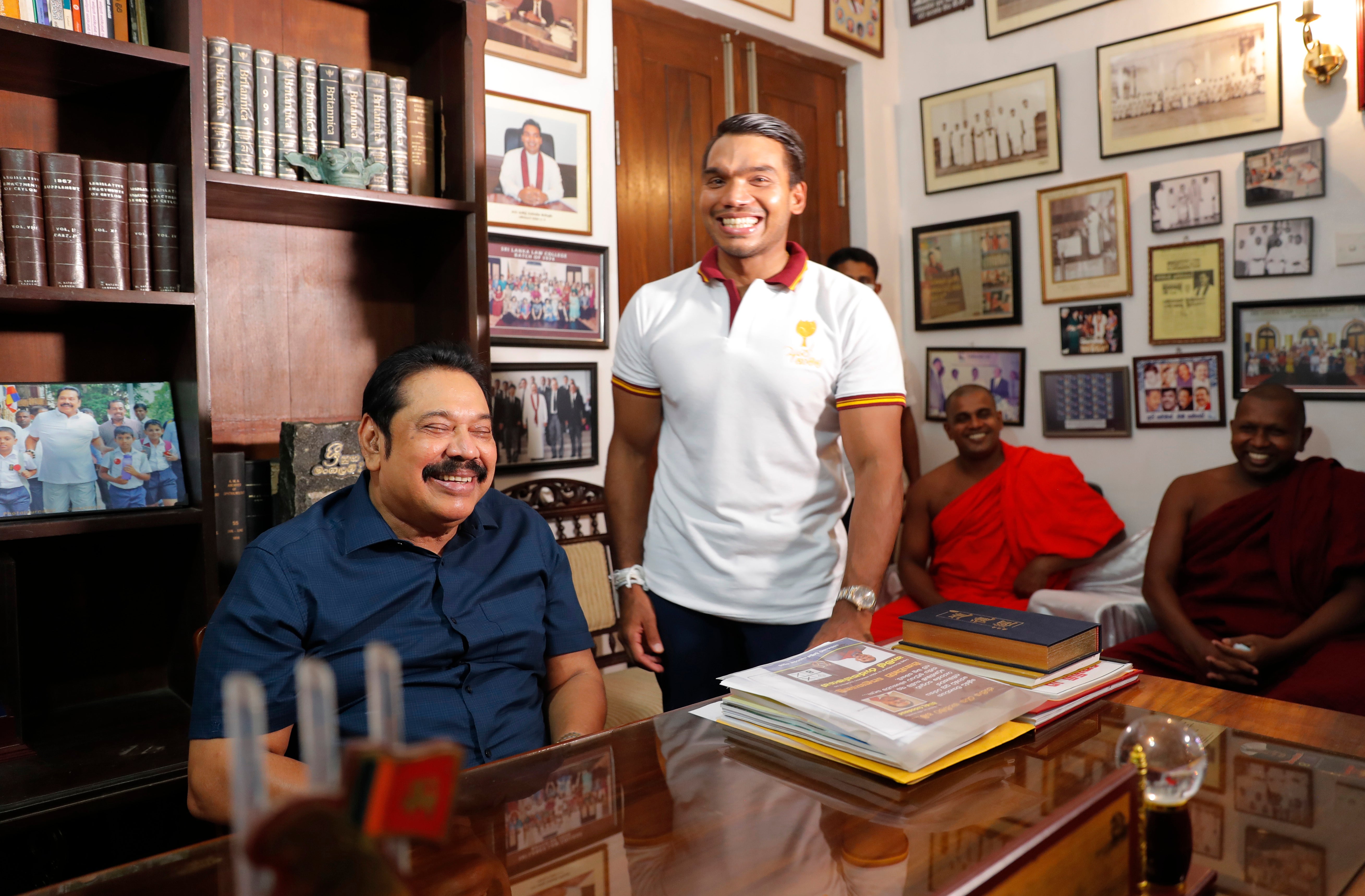Heir apparent to Sri Lanka's powerful Rajapaksa family will run in September's presidential election
The man who is considered the heir apparent to the powerful Rajapaksa family in Sri Lanka will contest the presidential election in September

Your support helps us to tell the story
From reproductive rights to climate change to Big Tech, The Independent is on the ground when the story is developing. Whether it's investigating the financials of Elon Musk's pro-Trump PAC or producing our latest documentary, 'The A Word', which shines a light on the American women fighting for reproductive rights, we know how important it is to parse out the facts from the messaging.
At such a critical moment in US history, we need reporters on the ground. Your donation allows us to keep sending journalists to speak to both sides of the story.
The Independent is trusted by Americans across the entire political spectrum. And unlike many other quality news outlets, we choose not to lock Americans out of our reporting and analysis with paywalls. We believe quality journalism should be available to everyone, paid for by those who can afford it.
Your support makes all the difference.The man who is considered the heir apparent to the powerful Rajapaksa family in Sri Lanka will contest the presidential election in September, his family's political party said Wednesday, in an apparent bid to regain his family's lost power after a humiliating setback two years ago during an unprecedented economic crisis in the Indian ocean island nation.
The Sri Lanka Peoples’ Front said the 38-year-old lawyer Namal Rajapaksa, the eldest son of former strongman president Mahinda Rajapaksa, will be its candidate in the Sept. 21 election, the first since the nation plunged into its worst economic crisis.
The election is seen as key to Sri Lanka's efforts to conclude a critical debt restructuring program and completing the financial reforms agreed to under a bailout program by the International Monetary Fund.
The nominations for polling will be accepted on Aug. 15.
The Rajapaksa family has dominated Sri Lankan politics since the country gained independence from Britain in 1948, producing a dozen of lawmakers from three generations over seven decades. Mahinda Rajapaksa ruled as president from 2005 to 2015, appealing to the nationalist sentiment of the island’s Buddhist-Sinhalese majority.
Rajapaksa is revered by that majority for leading Sri Lanka to victory over ethnic Tamil rebels in 2009, ending a 26-year civil war.
In 2015, he lost to the opposition led by his former aide. But the family made a comeback in 2019, when Rajapaksa's younger brother Gotabaya won the presidential election on a promise to restore security in the wake of the Easter Sunday suicide bombings that killed 290 people.
But the Rajapaksa family lost power unexpectedly in 2022 when Sri Lanka was engulfed in its worst economic crisis that was largely caused by mismanagement and lack of accountability.
The resulting shortages of essential goods sparked riots in 2022, leading to a political crisis that forced four Rajapaksa siblings and two of their sons, including Namal, to resign from their posts as president, prime minister and cabinet ministers. Namal Rajapaksa had been minister of youth and sports. But they remained as lawmakers.
Parliament elected then-Prime Minister Ranil Wickremesinghe as president.
The economic situation has improved under Wickremesinghe. But public dissatisfaction has grown over the government’s effort to increase revenue by raising electricity bills and imposing heavy new income taxes on professionals and businesses as part of efforts to meet the conditions of the IMF, which approved a four-year bailout program last March.
Wickremesinghe has announced he will contest the September election, while main rivals will be opposition leader Sajith Premadasa and Anura Dissanayake, the leader of a leftist political party that has gained popularity after the economic debacle.
It’s not clear whether Namal would be able to win the election, as his Sri Lanka Peoples’ Front is already split with some lawmakers having pledged support to Wickremesinghe.
Wickremesinghe’s party has only one seat in the 225-majority parliament, and he has been ruling with the support of lawmakers from the Rajapaksas' party.